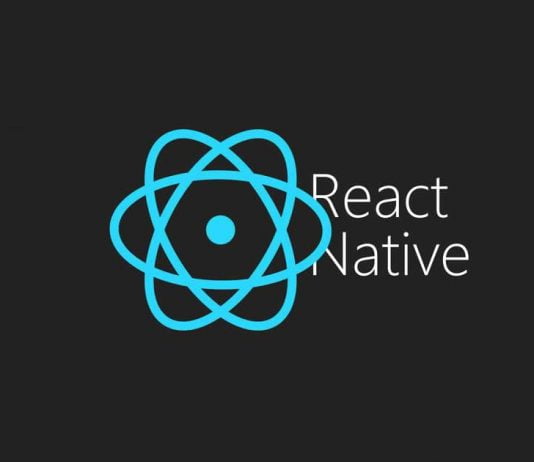As more and more developers are starting to find out, React Native is a mobile app development framework that cuts time and expenses. It allows them to develop separate apps for iOS and Android in half the time and effort it previously required. These cost-cutting and time-saving advantages are the basis for why many expert developers now believe that within the field of cross-platform mobile development, the future lies with React Native framework.
With mobile phones have become a necessity for individuals, businesses that cater to these individuals through their apps are at a crossroads. When it comes to offering their services to mobile phone consumers, they can’t decide whether to give more priority to adaptability over multiple platforms or to provide an outstanding User Experience (UX) with a fantastic User Interface (UI). This uncertainty has been brilliantly tackled by the REACT Native Development framework.
Contents
What is React Native?
First introduced by Jordan Walke while working as a software engineer at Facebook, React Native is an open-source framework that allows better user experience through simpler, easy to understand technology for the developer. Much like the apps that are built on Objective-C, Java, or Swift, React Native uses similar UI building blocks as Android or iOS apps. Where React leaves other frameworks behind is in terms of their speed and low cost.
Instead of duplicating work and doing the same thing for Android and iOS platforms, REACT cuts downtime with the help of JavaScript. Developers must code only once for the UI to be supported on both platforms. In terms of longevity, the future looks bright for the framework as being open-source; it promises to be compatible with platforms such as tvOS or Windows.
Another benefit of using the framework is its great versatility. As long as the existing app is built with Ionic and Cordova code, developers have the choice of reusing the Cordova-based code with a plugin, or they can incorporate new REACT Native components of code into the app. Furthermore, since the framework is focused on the UI, it loads much more quickly and provides a smoother feel for the user.
The benefits of using React Native for development far outweigh those of its competitors and make it a top contender. Some of the most famous App examples of React Native framework being used are Facebook, Skype, Instagram, and Tesla.
Some of the more important advantages are:
1. A strong supportive community
Any development framework is only as strong as its community, which comes in handy in case of glitches and bugs. Since React Native is based on an open-source platform, all documentation and coding for the framework can be freely accessed by everyone in the community. Plus, in case of problems, the community aspect comes handy. In case there are issues regarding React Native app development, someone from the community of experts is always at hand to help you find a solution.
Moreover, since it’s on an open-source platform, the code is constantly being improved and streamlined based on the experiences of developers who share their portfolios. Examples of this are the GitHub React Native Community and the Facebook community, which has set up a special forum for long-form conversation.
2. Pre-built components and reusable code
Ask anyone about the benefits of React Native over other development frameworks, and the first thing they will mention is its great adaptability. The versatility of React lies in the fact that 90% of its code remains the same over iOS and Android. This saves developers the time and effort to build separate mobile apps for both platforms.
This is a great plus point for mobile app companies located in Atlanta, or across the world, that are starting out and are looking to cut down costs and reduce their time. Another benefit is that a lot of pre-built components in React’s open-source library can be reused for free to build a mobile app.
3. A sleeker user interface
The main focus of React Native framework is to provide a better experience for the user. That’s why React Native is preferred by most developers for an excellent mobile UI. Developers have termed interfaces designed in React Native to take less load time, be more responsive, and give users a smoother feel.
4. Third-party plugin support
In order to compensate for its lack of components in the core framework, React Native framework provides developers access to two types of third-party plugins: JavaScript modules and native modules. Some of these third-party plugins include: React Native Modalbox, React Native Selectme, React Native Drawer, React Native Router Flux, React Native Gifted Spinner, and React Native Vector Icons.
5. Declarative coding style
React Native framework uses a declarative programming style that tells what the program needs to do. However, it does not instruct the program how to go about it, which is called an ‘Imperative coding style’. The advantage of a declarative coding style is that it gives more flexibility to the program, and it’s also easily understood by developers. This comes in handy when a developer needs to make certain changes to the code.
6. Ready-made solutions and libraries
The React Native framework provides a detailed and lengthy list of libraries and ready-made solutions that assist mobile development. Some of the most useful ones are — Testing libraries that ensure bug-free code, such as Chai, Jest, Mocha, and Enzyme, type checking tools such as Flow, PropTYpes. For setting up networking workflow, there is Axios and Apollo Client.
Conclusion
React Native has proven its versatility and viability as a cheaper, easier to understand, and more adaptable development framework. It has a dynamic and rapidly growing community that is constantly updating its code and making it stronger and more complete, which bodes well for its future.
In a nutshell, then, React Native has come to be defined as the missing link that bridges the divide between the ease of development of a web app and the performance of a native app.


